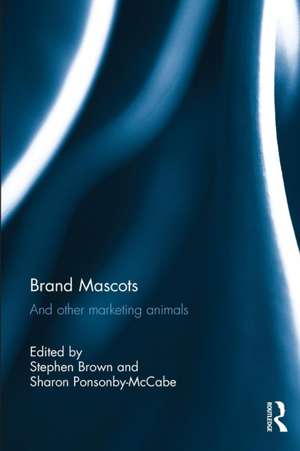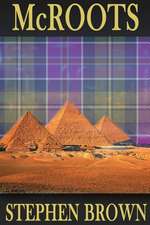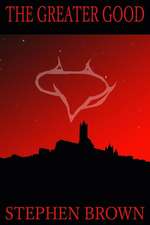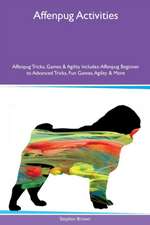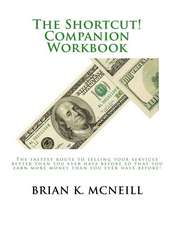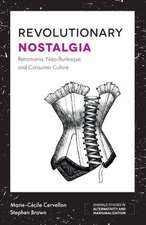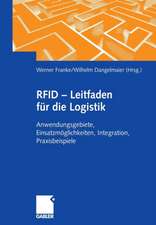Brand Mascots: And Other Marketing Animals
Editat de Stephen Brown, Sharon Ponsonby-McCabeen Limba Engleză Paperback – 29 iul 2015
Mascots are one of the most widespread modes of marketing communication and one of the longest established. Yet, despite their ubiquity and utility, brand mascots seem to be held in comparatively low esteem by the corporate cognoscenti. This collection, the first of its kind, raises brand mascots’ standing, both in an academic sense and from a managerial perspective.
Featuring case studies and empirical analyses from around the world – here Hello Kitty, there Aleksandr Orlov, beyond that Angry Birds – the book presents the latest thinking on beast-based brands, broadly defined. Entirely qualitative in content, it represents a readable, reliable resource for marketing academics, marketing managers, marketing students and the consumer research community. It should also prove of interest to scholars in adjacent fields, such as cultural studies, media studies, organisation studies, anthropology, sociology, ethology and zoology.
| Toate formatele și edițiile | Preț | Express |
|---|---|---|
| Paperback (1) | 469.38 lei 6-8 săpt. | |
| Taylor & Francis – 29 iul 2015 | 469.38 lei 6-8 săpt. | |
| Hardback (1) | 1282.88 lei 6-8 săpt. | |
| Taylor & Francis – 25 iun 2014 | 1282.88 lei 6-8 săpt. |
Preț: 469.38 lei
Nou
Puncte Express: 704
Preț estimativ în valută:
89.83€ • 93.43$ • 74.16£
89.83€ • 93.43$ • 74.16£
Carte tipărită la comandă
Livrare economică 15-29 aprilie
Preluare comenzi: 021 569.72.76
Specificații
ISBN-13: 9781138825079
ISBN-10: 1138825077
Pagini: 320
Dimensiuni: 156 x 234 x 17 mm
Greutate: 0.45 kg
Ediția:1
Editura: Taylor & Francis
Colecția Routledge
Locul publicării:Oxford, United Kingdom
ISBN-10: 1138825077
Pagini: 320
Dimensiuni: 156 x 234 x 17 mm
Greutate: 0.45 kg
Ediția:1
Editura: Taylor & Francis
Colecția Routledge
Locul publicării:Oxford, United Kingdom
Public țintă
PostgraduateCuprins
1. Introduction - Mascot Mania: Monkeys, Meerkats, Martians and More (Stephen Brown) Part I: Man 2. Objectification and Anthropomorphism of the Self: Self as Brand, Self as Avatar (Russell Belk) 3. ‘What are You Looking at, Ya Hockey Puck?!’: Anthropomorphising Brand Relationships in the Toy Story Trilogy (Clinton D. Lanier, Jr., Aubrey R. Fowler III and C. Scott Rader) 4. Cross Domain Perceptual Realities and Mickey Mouse (Mark Avis) 5. Morris the Cat, or the Wolf-man on the Upper West Side: Animal Metaphors and Me (Morris B. Holbrook) Part II: Beast 6.Feline Fetish and Marketplace Animism (Yuko Minowa) 7. Boudoirs, Cowdillacs and Rotolactors: A Salutary Tale of Elsie the Brand Mascot (Lorna Stevens, Pauline Maclaran and Matthew Kearney) 8. Peppa Piggy in the Middle of Marketers and Mashup Makers: A Netnography of Absurd Animation on YouTube (Catherine Wilkinson and Anthony Patterson) 9. Anthropomorphic Brand Presenters: The Appeal of Frank the Sheep (Alan Pomering and Maria Frostling-Henningsson) Part III: Wild 10. Spokes-Characters: Assurance, Insurance and Advice for Marketers (Barbara J. Phillips) 11. Schmoozy Fox: Standing Out from the Pack (Olga Slavkina and Adriana Campelo) 12. Only you can Prevent Brand Burnout: Cultural Branding and the Case of Smokey Bear (Diane M. Martin, Connie Bullis, Jack Tillotson and John W. Schouten) 13. Shooting the Elephant: Mascots and Me (Modesty Forbids) Part IV: Cazy 14. Anthropogenic Anthropopathous Anthropomorphic USPTO Trademarks: The Plant People Phenomenon Model of Anthropomorphism (Beth Duffy) 15. He Who Must Not be Named: An Exploratory Study of Demonic Narratives in Contemporary Brands (Robin Croft) 16. The Smiling Faces of Capital and the Three Vortices of Hell (James Freund) 17. Coats of Arms: The Role of Animal Emblems in Contemporary Luxury and Fashion Industry (Marie-Cécile Cervellon) 18. Conclusion - The Cosmic Serpent Surrounds Us: Future Directions in Mascot Marketing (Sharon Ponsonby-McCabe)
Notă biografică
Stephen Brown is Professor of Marketing Research at the University of Ulster, Northern Ireland.
Sharon Ponsonby-McCabe is a lecturer in marketing communication at the University of Ulster, Northern Ireland
Sharon Ponsonby-McCabe is a lecturer in marketing communication at the University of Ulster, Northern Ireland
Recenzii
‘A joyous celebration of marketing’s forgotten 5th P, the psychopomp – that semiotic spirit that shuttles us between the material world of goods and the ethereal realm of brand meaning. This managerial bestiary, at turns poignant and personal, delights and edifies in its unfolding. These cultural biographies of our favourite fetishes and totems fairly sparkle in the humane rendering by some of our most accomplished theorists of consumption. No animals were harmed in producing this book. They are exalted in the writing.’ - John F. Sherry, Jr., Herrick Professor & Department Chair, Mendoza College / Marketing & Professor of Anthropology (Concurrent), University of Notre Dame, USA
‘It’s long past time that brand mascots got some love thrown their way—Stephen Brown and Sharon Ponsonby-McCabe have breathed new life into this subject, providing a rich examination of the vast range of characters and critters that encapsulate many of the great brands of the globe.’ – Professor Mike Beverland, University of Bath, UK
‘In our role as creators of famous and effective communication ideas, ad agencies have long intuitively understood the power of brand properties. From the Andrex Puppy to Aleksandr the meerkat – these properties are advertising gold dust for clients’ businesses – building brand appeal, personality, salience and long –term memorability. Why exactly do they work so well though? This book provides a welcome wide-ranging academic exploration and analysis of their power.’ - Sarah Carter, Planning Director, adam&eveDDB
‘It’s long past time that brand mascots got some love thrown their way—Stephen Brown and Sharon Ponsonby-McCabe have breathed new life into this subject, providing a rich examination of the vast range of characters and critters that encapsulate many of the great brands of the globe.’ – Professor Mike Beverland, University of Bath, UK
‘In our role as creators of famous and effective communication ideas, ad agencies have long intuitively understood the power of brand properties. From the Andrex Puppy to Aleksandr the meerkat – these properties are advertising gold dust for clients’ businesses – building brand appeal, personality, salience and long –term memorability. Why exactly do they work so well though? This book provides a welcome wide-ranging academic exploration and analysis of their power.’ - Sarah Carter, Planning Director, adam&eveDDB
Descriere
Mascots are one of the most widespread modes of marketing communication and one of the longest established. Yet, despite their ubiquity and utility, brand mascots seem to be held in comparatively low esteem by the corporate cognoscenti. Featuring case studies and empirical analyses from around the world this book presents the latest thinking on beast-based brands. Entirely qualitative in content, it represents a readable, reliable resource for marketing academics, marketing managers, marketing students and the consumer research community.
